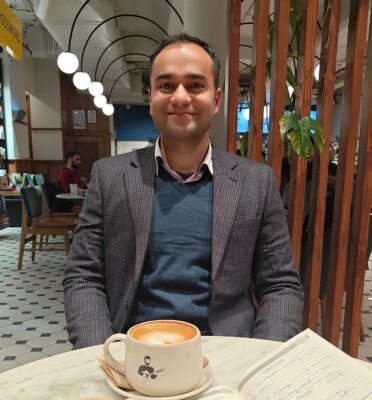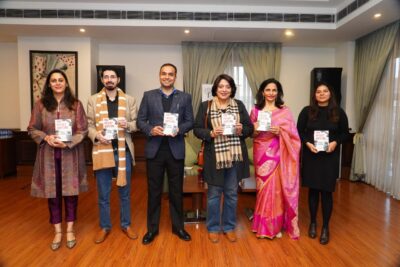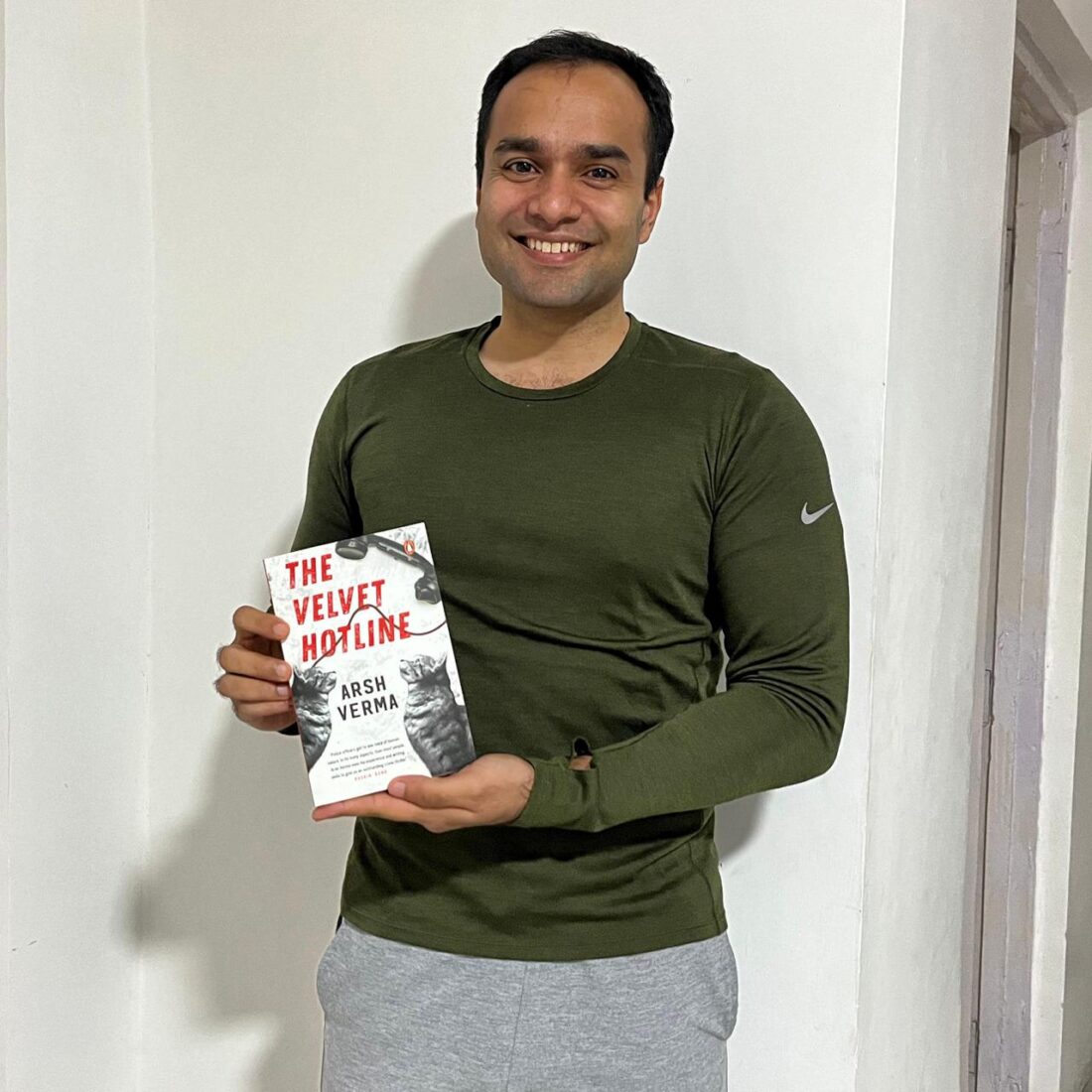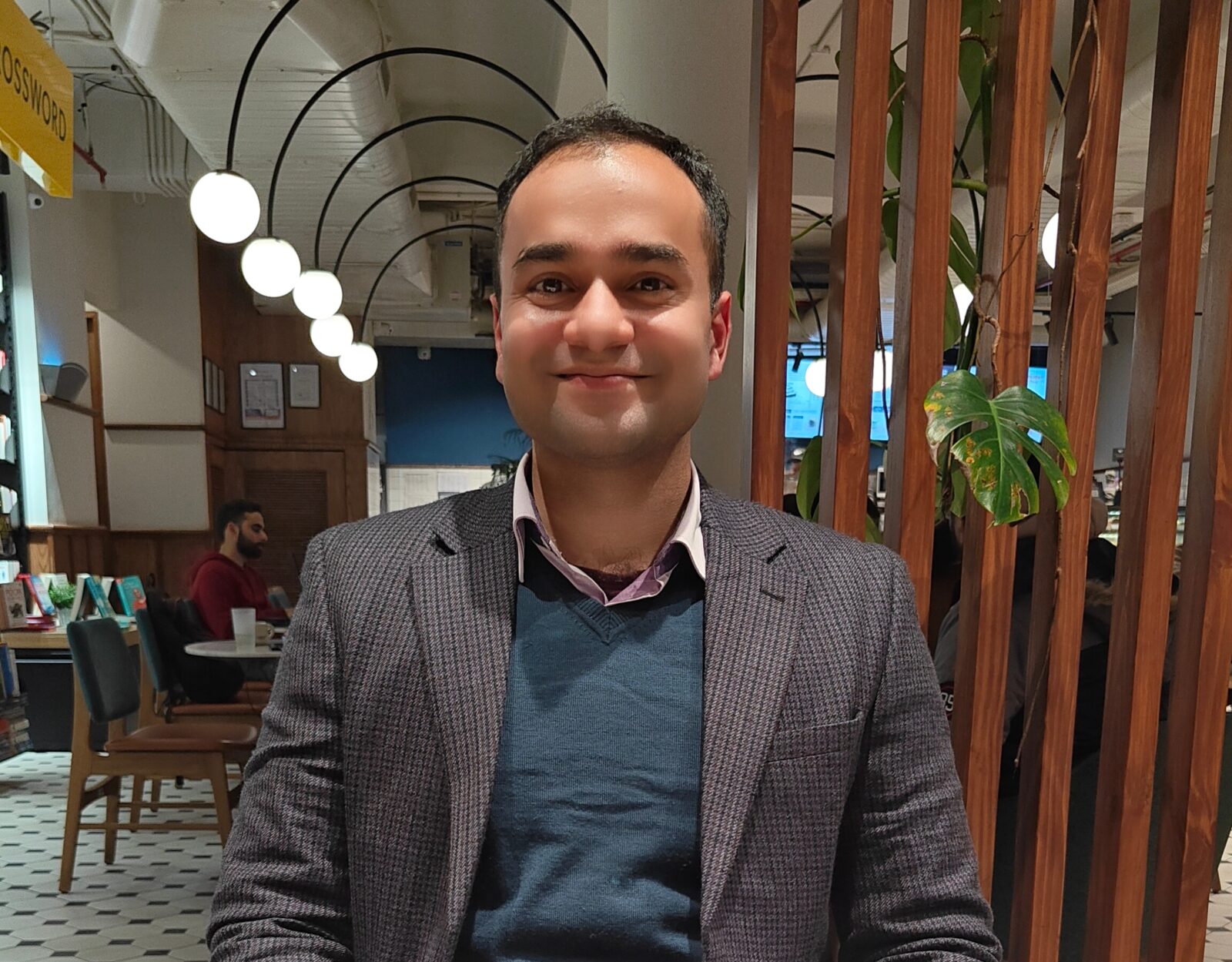
“Meet the author Arsh Verma, IPS, at the book signing of his debut novel, ‘The Velvet Hotline’”, the message from the book club read. Interesting, I thought, both the name of the novel and the fact that the author is a serving IPS officer. An author policeman is a rarity in the literary world. Suffice to say, it’s not often one comes across someone who can combine his career in law enforcement and love for writing as skillfully as Arsh Verma.
A case in point is the storyline of ‘The Velvet Hotline’. I expected a book written by a policeman to come with a generous dose of cops and criminals, blood and gore, and murders and heists! Instead, I found a sensitive story centered around a suicide helpline, a protagonist named Ayingbi and teeterlings in the shadows. Intriguing, I thought, and reached out to Arsh Verma, the author policeman to delve into the makings of the book and the writer.
Every story has a beginning. When did you know you wanted to be a writer?
In 2006, I was selected as a national finalist in an All India writing competition adjudged by Ruskin Bond. Suffice to say, it was a massive vote of confidence and gave my 14 year old the validation I craved. The actual experience of going to Mumbai and interacting with other finalists made me realise how much I loved being a part of the writing community. It provided the impetus to brainstorm more ideas, deconstruct books/movies/TV, scribble out sweeping outlines for six-part epics while hammering out short stories. The fact that it happened all at once in a frenzy of enthusiasm, confirmed my suspicion that I had been bitten by the writing bug, and this obsession was going to be for life.
Let’s talk about your debut novel. How did you come up with the core idea for The Velvet Hotline and develop it?
The original idea came from a detached academic musing on the concept of suicide. Considering that all living creatures are endowed with a primal survival instinct, suicide then is an aberration of nature. I wanted to design a novel around the concept, which would explore all the philosophical themes, as well as provide a compelling showcase for me as a writer. A story about a suicide hotline has all the elements of a riveting thriller – the suspense of ringing telephones, tense life-and-death situations, a parade of eccentric, quirky characters. The way the book is set up in a number of mini-episodes, allowed me to juggle a number of genres in how each sequence is presented, while also allowing the larger plot to simmer in the background.
I must ask the question that’s uppermost on my mind at this point. How has being a policeman influenced your writing?
As Ruskin Bond sagaciously observed on the front cover of my book that being a police officer does give a greater insight into the deeper, darker facets of human nature. People put on a front of respectability when they are out in public or in social situations. Their masks come off when they are dealing with the police, whether they are perpetrators or victims. Policemen see humans at their most vile, their most vulnerable, and their most desperate. I think that my experiences have seeped osmotically into my writing.
Take us through your writing process – when and where do you like to write? Also, the dreaded writer’s block – how do you deal with it?
I like to squeeze out an hour or so a day to write, typically after dinner. Maybe more on weekends. I try to be consistent, because I get frustrated with myself when I’m not. I write on a regular laptop – nothing fancy. And there’s no designated writing spot. I’m perfectly happy to write in any room, on any chair, with or without music and company. I’m actually pretty good at creating a creative hotspot for myself with very little signal. My actual writing process is deliberately dull and unglamorous as I don’t like to pedestalize it in order to keep it relaxed and freeing.
I do have a terrible fear of a writer’s block, which I try to circumvent by doing all my planning/plotting up front. This way, I have a bird’s eye view of the story with a thorough understanding of major story beats, and full control over the pacing, character development and other key narrative elements. I like to write dissimilar scenes on consecutive days to avoid monotony.
It’s a very top-down process. I wouldn’t recommend this method to anyone as it basically comes down to enjoying your dessert before your greens. It also means that you don’t get the joy of organic discovery while writing. I’m okay with it, though, because I will do anything to avoid getting stonewalled mentally, and have the story sputter and die at my feet. It’s a horrid feeling. It has happened to me a couple of times in the past, and I’ll do anything to avoid it.

Your book deals with a serious subject like suicide. What kind of research did you put into writing the book?
For the philosophical aspects of the book, my bible was, ‘The Myth of Sisyphus’, probably the work which most fully represents my own worldview. I read up extensively on the psychological, medical and scientific dimensions of suicide and depression. I researched how suicide hotlines operate to be factually correct and even made a couple of dummy calls.
What is the most fulfilling part of writing a book? And also, the most difficult part?
Definitely writing the ending. It leaned away from thriller conventions and delved into some navel-gazing conversations, which were my reason for writing the book in the first place. I was afraid of plonking those conversations into the narrative too early, because I didn’t want to put off the readers who were there just for the potboiler promised on the back cover.
The most difficult sequence to write in the book was the Floop sequence, which comes two-thirds of the way in. The scene with the cats on the front cover is a close second. The bit on the barrage comes third.
This brings me to my favourite question, who is your favourite author and why?
Roald Dahl for his dark, twisted, imaginative short stories. Patrick Suskind for showing me how beautiful prose can, infact, be married to a deeply engrossing and off-kilter story. Khushwant Singh for convincingly managing to sell Delhi as a lovely place. Ruskin Bond for capturing the je ne sais quoi of the Himalayan foothills. JK Rowling for obvious reasons.
If you could give advice to your younger self, what would it be?
Throw your hat into the publishing ring earlier. Buy Bitcoin in 2009.
How would you like to be remembered?
As someone who told a lot of terrific, original stories that were totally different from each other, consistently, and for a long, long time.
What’s next for Arsh Verma, the author policeman?
Another genre-blending horror/thriller/dark comedy. It will be set in a hill-station and will focus on a family of four. The tentative title is ‘The Itch’. Then there’s a period adventure set in the British Raj. Also, a tragedy loosely inspired by the story of the blue jackal. There’s a novel for teens set in an orphanage. A high fantasy novel. A military sci-fi story. A satirical horror novel. And lots more! Ugh, let’s see how The Velvet Hotline fares first!
A very exciting fare, indeed! Finally, how do you like your coffee?
Far away from my cup (give me masala chai with the works)!!

Arsh Verma
Purchase the book here.

Thanks for introducing us to a new author in such an interesting manner. Very well penned.
Will definitely read the book….Rashmi…the write up makes it all the more intriguing.To many more …Arsh
Highly readable and well-crafted conversation. The interviewer poses incisive questions to bring out the thematic issues as well as the creative process. Equally articulate are the author’s replies, which make the conversation a very enriching experience.